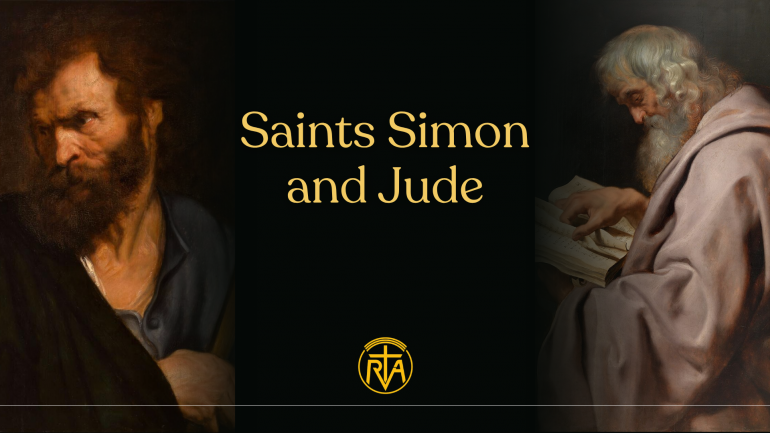Saints Simon and Jude: Called, Beloved, Kept Safe

I once met an elderly woman at a parish office hour who told me she felt invisible. “I have been coming here for twenty years,” she said, stirring her tea, “and sometimes I wonder if anyone would notice if I stopped.”
Her words stayed with me because I recognised that ache, the fear that our lives might not matter, that we are just background noise in someone else’s story. Then I thought of Simon and Jude, two apostles whose feast we celebrate on October 28, men whose names most Catholics struggle to remember, yet whose faithfulness changed the world.
Simon was called the Zealot (Luke 6:15), a title that hints at fire and passion, maybe even a revolutionary past. Jude, sometimes called Thaddaeus (Matthew 10:3), carried a name that would later become synonymous with impossible situations.
We do not have dramatic stories about them like we do with Peter or John. We have fragments, whispers, traditions passed down through centuries. They walked with Jesus, heard His teachings, witnessed His miracles, and then, after Pentecost, they simply went. Tradition says they traveled together to distant lands, perhaps Persia, preaching a Gospel most had never heard. They were not seeking fame. They were seeking hearts.
What moves me about Simon and Jude is their ordinariness. They were not the ones Jesus chose to write gospels. They did not walk on water or receive visions that shaped church doctrine. They were faithful in the quiet, unglamorous work of loving people one conversation at a time.
“Lord, you have searched me and known me,” the Psalmist writes (Psalm 139:1), and I imagine these two men drawing strength from that truth. Jesus knew them completely, their doubts, their stumbling, their moments of confusion and chose them anyway.
The Epistle of Jude, tucked near the end of our New Testament, feels urgent and tender at once. “Contend for the faith that was once for all entrusted to the saints,” he writes (Jude 1:3). But before that battle cry, notice how he addresses his readers: “To those who are called, who are beloved in God the Father and kept safe for Jesus Christ” (Jude 1:1). Called. Beloved. Kept safe. These were not empty words for Jude. He had walked away from his fishing nets, his comfortable life, his plans. He had risked everything on Jesus, and he wanted others to know that risk was worth it.
Simon and Jude died together, tradition tells us, martyred for their faith in a land far from home. Their deaths were real tragedies, the kind that break hearts and leave communities grieving. And yet, somehow, mysteriously, they were also offerings, seeds planted in foreign soil that would bloom into faith communities still living today. “Unless a grain of wheat falls into the earth and dies, it remains just a single grain; but if it dies, it bears much fruit,” Jesus promised (John 12:24). I picture them in that final moment, not without fear or pain, but holding fast to what they had already given everything to believe.
What keeps bringing me back to these two saints is how they speak to every person who feels overlooked. The woman at the office hour. The father working two jobs to provide for his family while no one notices. The teacher pouring her heart into students who rarely say thank you. The grandmother praying rosaries in her kitchen for children who have drifted away. Simon and Jude say to us: Your life matters. Your faithfulness counts. God sees you.
St. Jude became known as the patron of hopeless causes, and I love that. Not because our situations are actually hopeless, but because sometimes they feel that way, and we need someone who understands. Jude walked impossible roads, preached to hostile crowds, and kept believing that love would win. When we cry out to him, we are reaching toward someone who knows what it means to keep going when everything looks dark.
“Follow me,” Jesus said (Matthew 4:19), and Simon and Jude did. Not perfectly. Not without questions. But they did. Their feast day asks us: Will you? Will you say yes to the small, unseeable acts of love that shape eternity? Will you trust that your life, offered to God, means more than you will ever know?
“The Lord has done great things for us; we are filled with joy,” the Psalmist sings (Psalm 126:3). Simon and Jude discovered that joy not through recognition but through surrender. May we find it too, trusting that the God who searched us and knows us has written our names where they will never be forgotten.








